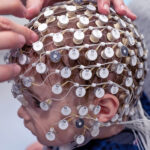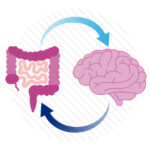Delving into the causes of attention deficits: Childhood adversity, lost sleep, and dopamine

New research on the effects of adversity in childhood ties together stress, sleep loss, and attention deficits later in life. It also uncovers some of the underlying brain biology and potential treatment approaches — while revealing a puzzling sex-specific effect.
The lab of Takao Hensch, PhD, has long studied time windows during development — commonly termed critical periods — when the brain actively revises its circuits in response to experience. In a cover story in Science Translational Medicine, the Hensch Lab now shows that there is an early critical period for the development of attention that is disrupted by adversity — in this case parental neglect.

“We pinpointed the timing and mechanisms underlying attention problems in mice and connected it to human children,” says Hensch, a scientist with the F.M. Kirby Neurobiology Center at Boston Children’s Hospital and Harvard University’s Center for Brain Science.
Hensch and his colleagues modeled early adversity by studying mice whose mothers were distracted and gave erratic care during the critical newborn period. The male offspring, but not the females, showed attention deficits in adulthood, performing poorly on attention-related visual tasks that required making choices.
Aside from being sex-specific, the attention deficits appeared to be driven by disrupted sleep patterns. In fact, sleep loss alone produced the same attention deficits in adult mice that hadn’t experienced neglect.
Hensch sees a parallel in people. “We know that even just a few nights of bad sleep can cause our attention to drop,” he says.
Adversity, stress, sleep loss, and attention
Intriguingly, Hensch’s team identified a brain mechanism underlying the attention deficits: a difference in the balance of dopamine receptors in the anterior cingulate cortex (ACC), which regulates emotions and control of thoughts and actions. One receptor, D2, was elevated, while another, D4, was reduced — whether the attention deficits resulted from parental neglect or directly from sleep loss in adulthood.
Even more strikingly, the imbalance was reversible with drugs that either suppressed the D2 receptor or stimulated D4. In either case, treatment improved attention well after the critical period was over.
“We think dopamine signaling in the ACC is closely related to attention,” says Hensch.
Finally, the team found that in male mice, early adversity was associated with oxidative stress in the brain and increased levels of a peptide called orexin in the brain’s sleep centers. “Orexin is an arousal molecule and was associated with sleep loss in males,” says Hensch.
Teasing out sex-specific effects
Why are the effects of early adversity and sleep loss specific to males? Parallel human studies conducted by paper co-authors at the University of Pittsburgh and the University of Calgary confirmed that children (primarily boys) show attention deficits by age 3 to 5. These findings are consistent with the known higher prevalence of ADHD in boys and further indicate that sex differences emerge soon after early life stress.
Hensch’s lab plans further work to explore what makes females more resilient to adversity, both in mice and in humans. “We think the female brain may protect itself during unpredictable caregiving conditions by consolidating its circuits faster,” Hensch says. “The down side is that they may then be losing out on later critical periods by maturing too quickly.”
The researchers also want to better understand what causes the dopamine receptor imbalance and what specific cell types in the ACC are affected. Ultimately, the work may lead to ways of helping people with attention deficits.
The study was inspired by earlier human research on the cognitive effects of early adversity. Over decades in Romania, Charles Nelson, PhD, chair in Pediatric Developmental Medicine Research at Boston Children’s, found that neglected babies in orphanages tended to develop lasting cognitive and behavioral dysfunction, including attention deficits. However, transfer to quality foster homes before age two reduced these effects.
“This study offers hope that brain circuitry might be rescuable even after passing through the crucial period,” says Hensch. “We could have an informed chance to intervene.”
Explore research in the F.M. Kirby Neurobiology Center and subscribe to Boston Children’s monthly research newsletter.
Related Posts :
-

EEG markers in early life could help predict and diagnose anxiety
Anxiety disorders are the most common mental health problem among children and adolescents and are a risk factor for adult ...
-

The gut-brain connection: A new approach to OCD and tic disorders?
It’s natural for young children to use routines to help them navigate the world and for older children and ...
-

Reversing the trend: Easing the mental health boarding crisis in emergency rooms
Anxiety, depression, and suicide attempts have been rising over the past decade, especially among teens, often landing them in emergency ...
-

Brain wiring predicted adolescents’ emotional health during COVID
The COVID-19 pandemic was emotionally devastating for many adolescents, disrupting their schooling and social/emotional development. Drawing on national data, ...





